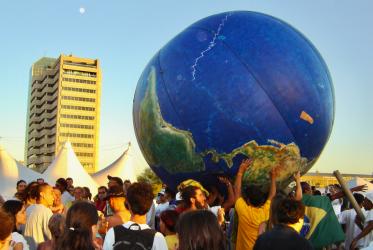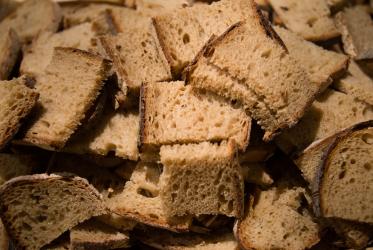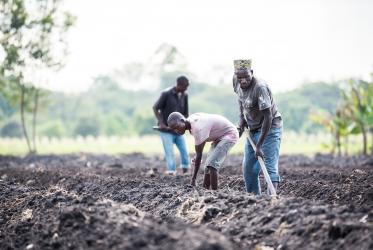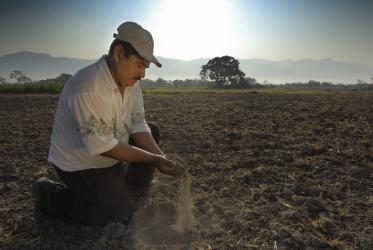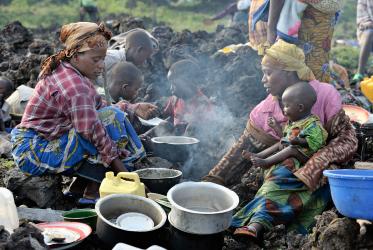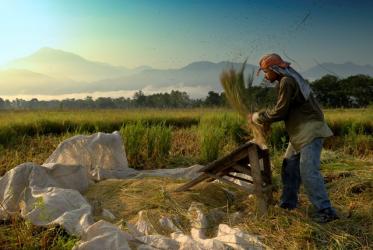Displaying 1 - 20 of 20
On World Food Day, “we pray for wisdom to care for the earth”
16 October 2020
Re-engineering life forms: Church forum raises concerns
09 November 2017
Responsible agriculture investments theme of WCC session
16 October 2017
WCC offers food for thought as “Food Week” approaches
03 October 2016
Tveit on the “Ten Commandments” of food
26 January 2016
COP21: how climate change affects access to our daily bread
09 December 2015
Everyone urged to join Zero Hunger Challenge
29 June 2015
